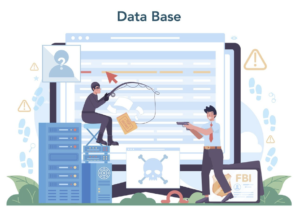In the digital age, where customer relationships are paramount, the effective management of customer databases is a critical aspect of business success. A well-maintained customer database not only serves as a repository of valuable information but also forms the foundation for personalized and targeted interactions. In this guide, we’ll explore simple yet effective strategies for managing your customer database to enhance customer relationships and drive business growth.

The Importance of Customer Database Management
1. Centralized Information Repository:
A customer database consolidates essential information about your customers in one centralized location. This includes contact details, purchase history, preferences, and any other relevant data. Having a unified view enables businesses to better understand and engage with their customers.
2. Personalized Customer Interactions:
A well-managed customer database allows for personalized interactions. By understanding customer preferences and behavior, businesses can tailor their communications, offers, and recommendations, creating a more meaningful and satisfying customer experience.
3. Targeted Marketing Campaigns:
Segmentation and analysis of customer data empower businesses to run targeted marketing campaigns. This ensures that promotions and messages resonate with specific customer segments, increasing the likelihood of conversion.
4. Improved Customer Retention:
Customer database management plays a crucial role in customer retention. By tracking customer interactions and satisfaction levels, businesses can proactively address issues, provide timely support, and foster long-term relationships.
Also Read: Unveiling the Game-Changing Benefits of Business Intelligence: A Comprehensive Exploration
Simple Strategies for Effective Customer Database Management
1. Collect and Update Information Responsibly:
Start by collecting relevant customer information ethically and responsibly. Ensure that you have consent to gather data and periodically update records to maintain accuracy.
2. Use a Customer Relationship Management (CRM) System:
Implementing a CRM system simplifies customer database management. These platforms streamline data entry, automate processes, and provide a centralized hub for customer-related activities.
3. Segmentation for Targeted Insights:
Segment your customer database based on demographics, behavior, or purchase history. This segmentation allows for targeted marketing efforts and a more nuanced understanding of diverse customer groups.
4. Regular Data Cleaning:
Conduct regular data cleaning to eliminate duplicate records, outdated information, and inaccuracies. A clean database ensures that decisions are based on reliable data, contributing to more effective marketing and sales efforts.
5. Data Security Measures:
Prioritize the security of customer data. Implement robust security measures to protect sensitive information and adhere to data protection regulations to build trust with your customers.
Real-World Applications
1. E-commerce:
E-commerce businesses leverage customer databases to recommend products based on past purchases, send personalized promotions, and optimize the online shopping experience.
2. Retail:
Retailers use customer databases to track in-store and online purchases, tailor loyalty programs, and send targeted offers to enhance customer engagement.
3. Service Industries:
Service-oriented industries use customer databases to manage service requests, track customer feedback, and personalize communication to meet individual needs.
Overcoming Challenges in Customer Database Management
1. Data Integration:
Ensure seamless integration between different systems to avoid data silos. This integration enables a holistic view of customer interactions across various touchpoints.
2. Training and User Adoption:
Provide training for staff to ensure proper usage of CRM systems and adherence to data management best practices. User adoption is key to maximizing the benefits of your customer database.
The Future of Customer Database Management
As technology evolves, the future of customer database management holds exciting possibilities. Artificial intelligence and machine learning are expected to play significant roles in automating data analysis, predicting customer behavior, and enhancing personalization.
In conclusion, effective customer database management is the linchpin for building lasting customer relationships and driving business success. By implementing simple yet powerful strategies, businesses can unlock the full potential of their customer data. As the digital landscape continues to evolve, mastering the art of customer database management is not just a best practice—it’s a strategic imperative for businesses aiming to thrive in the competitive marketplace.
Also Read:
How to Analyze Market Potential: Unveiling the Path to Business Success


